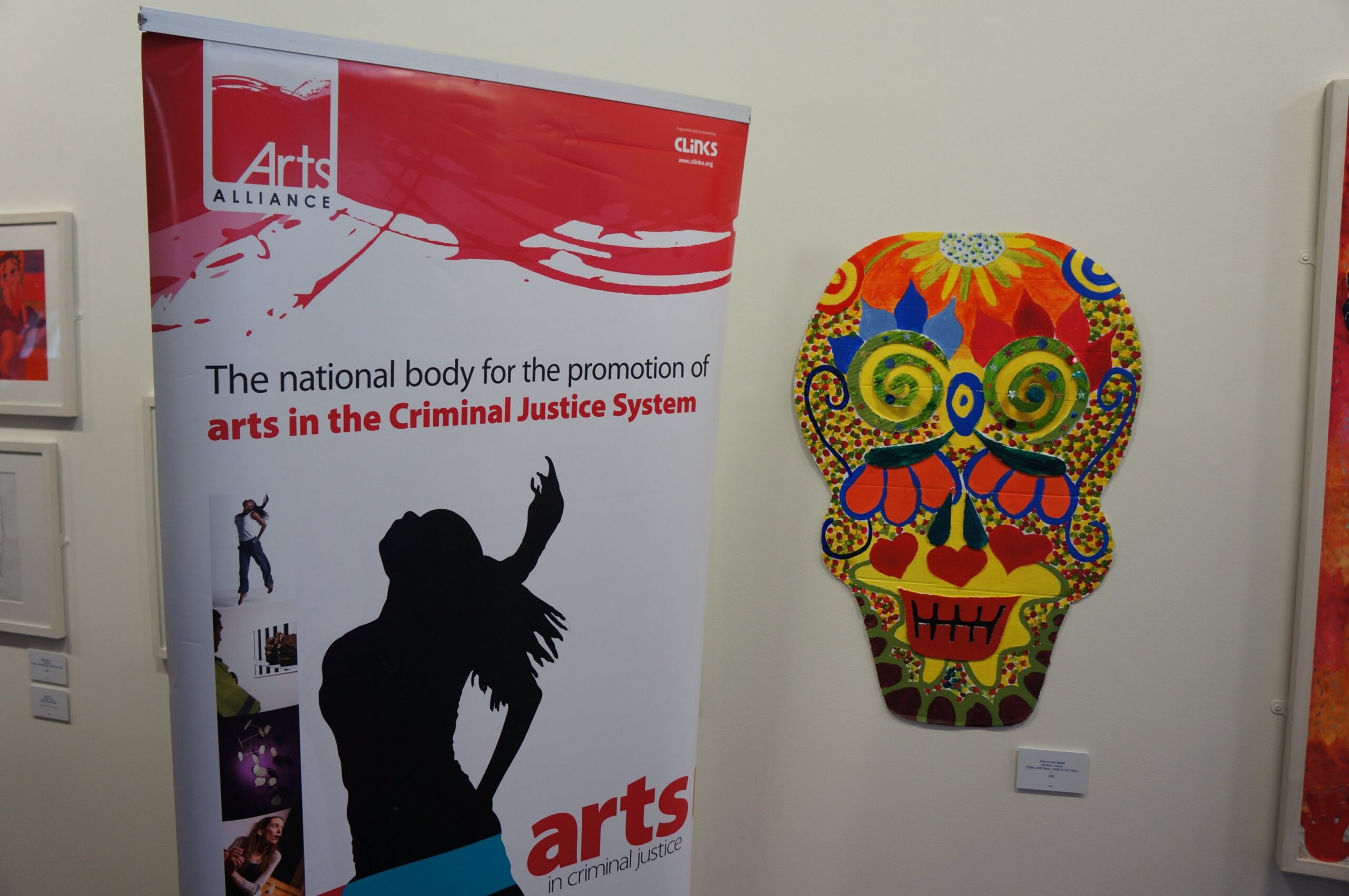
In the political eye
The Arts Alliance network and the Arts Forum are determined to keep the arts in criminal justice settings on the political agenda, says Jessica Plant.
The Arts Alliance is a pioneering network of artists, arts organisations, prison staff, academics and policy makers who come together to drive forward arts and creativity in criminal justice settings. We unite leading professionals, enabling a collective voice for this innovative and uniquely challenging area of work. Our mission is to ensure that “all ex/offenders get access to creative opportunities as a springboard to positive change”.
The network has gone from strength to strength in the last three years and now has a membership of over 600 people who work with over 40,000 offenders in prison or in the community each year. We are led by a steering group made up of our members, including representatives from Clean Break, Dance United, Geese Theatre Company, Helix Arts, Music in Prisons and a Prison Service representative. Our chair is Tim Robertson who is also CEO of the Koestler Trust. We provide events and resources for practitioners to share ideas and develop practice and our recent resources include:
- an online evidence library which hosts over 80 evaluations exploring arts in criminal justice settings;
- a one-to-one mentoring scheme for new and emerging artists looking to work in the field of arts and criminal justice;
- Write to be Heard, a new report looking at using creative writing to support offender learning.
We are managed by Clinks, the national infrastructure body for the voluntary sector in criminal justice.
Both the ‘arts’ and ‘offenders’ don’t easily foster public and political support, especially in times of austerity and government cuts
We play an important role in providing a voice to government for our members. The creation of the Arts Forum, which meets three times a year, brings together the Ministry of Justice, the Department for Culture, Media and Sport, the Department for Business, Innovation and Skills and Arts Council England (ACE). It has formalised a mechanism for communication between arts organisations and relevant government departments. It allows members to highlight strategic and operational issues which have an impact on how they carry out their work. Both the ‘arts’ and ‘offenders’ don’t easily foster public and political support, especially in times of austerity and government cuts. Therefore the Arts Forum keeps the arts in criminal justice settings on the agenda across relevant policy areas.
This Arts Forum, and Arts Alliance members, has had to consider and respond to significant policy changes in recent times. These include the introduction of new education providers in our prisons in 2012 through the Offender Learning and Skills Service, the implementation of Incentives and Earned Privilege scheme (which has reduced access to arts materials, musical instruments and books), and more recently the Ministry of Justice’s national Transforming Rehabilitation (TR) reforms.
The largest of these reforms is TR, this is the name given to the Government's plans to change the way in which offenders are managed, through the outsourcing of a large portion of the probation service in England and Wales. The reforms involve replacing the previous 35 individual Probation Trusts with a single National Probation Service, responsible for the management of high-risk offenders; and 21 Community Rehabilitation Companies (CRCs) responsible for the management of low to medium risk offenders in their Contract Package Area. The CRCs will also have a new responsibility for supervising short-sentence prisoners (those sentenced to less than 12 months in prison) after release.
This unprecedented level of change has created an ongoing period of uncertainty for arts organisations operating in criminal justice settings. Alongside this, many organisations have had to manage with reduced funding from ACE, which has had a significant impact on the sector. This makes it a challenging environment for arts organisations, and has made it all the more important that Arts Alliance can advocate on their behalf.
Through the Arts Forum, we have continuously highlighted the evidence of impact to government to demonstrate the potential implications these policy changes could have on the delivery of arts and innovation in prison and probation settings. At this point it remains to be seen whether these reforms will present new opportunities for arts organisations to flourish as part of new commissioning arrangements. We very much hope they do, especially as we know the arts have the power to engage offenders with complex needs.
However, despite the current challenging environment and ongoing uncertainty, dynamic arts organisations continue to demonstrate resilience, surviving and thriving in delivering work of profound significance to individuals, institutions, communities and the world of arts and culture.
We are now embarking on a new research programme called ‘Inspiring Futures’ which aims to create exciting collaborations from across our membership to enable a step-change in both the credibility and the reach of arts projects within the criminal justice system. It will explore how and in what way arts in criminal justice can change behaviour, both in relation to offenders and public opinion, to bring about lasting change in arts and criminal justice policy. We are therefore currently looking for artistic partners to support this work.
Finally, here is a quote from a prisoner: “Art gives us prisoners an opportunity to show that there is more to us than the crimes we’ve committed.”
Jessica Plant is Manager of Arts Alliance.
artsalliance.org.uk
Join the Discussion
You must be logged in to post a comment.